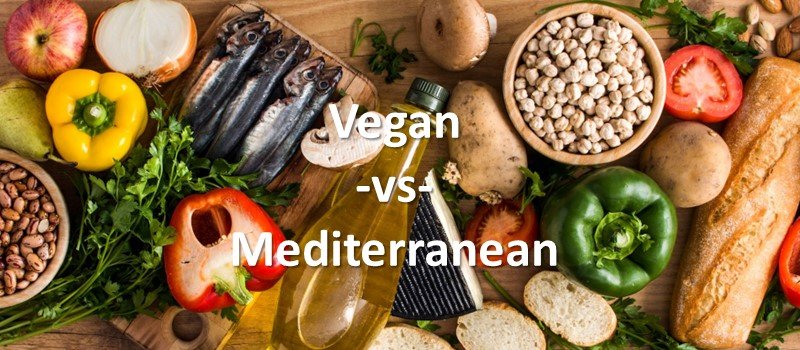When it comes to choosing a healthy diet, there are many options to choose from, including the vegan diet and the Mediterranean diet. While these two diets may seem quite different at first glance, they do have some similarities and differences that are worth considering. In this article, we will explore the similarities and differences between the vegan diet and the Mediterranean diet, and discuss which one may be better for overall health.
Similarities Between the Vegan Diet and the Mediterranean Diet
There are a few key similarities between the vegan diet and the Mediterranean diet.
Both diets emphasize the importance of whole, unprocessed foods and aim to reduce the intake of processed and refined foods.

Both diets also prioritize plant-based foods, with the vegan diet excluding all animal products and the Mediterranean diet emphasizing a high intake of fruits, vegetables, legumes, and whole grains.
Differences Between the Vegan Diet and the Mediterranean Diet
While the vegan diet and the Mediterranean diet do have some similarities, they also have some significant differences.
One of the main differences is that the vegan diet excludes all animal products, including meat, dairy, and eggs, while the Mediterranean diet includes animal products, specifically fish, poultry, and dairy.
Another difference is that the Mediterranean diet places a greater emphasis on the quality of the animal products consumed, with a focus on grass-fed, pasture-raised, and wild-caught sources.
The vegan diet does not include any animal products at all. The Mediterranean diet also includes moderate amounts of olive oil, a key component of the diet that is not typically included in a vegan diet.
Which Diet is Better?
When it comes to determining which diet is better, it’s important to consider a number of factors, including personal preferences, dietary needs, and health goals.
Both the vegan diet and the Mediterranean diet can be healthy and nutritionally adequate if they are well-planned.
However, there are a few key reasons why the vegan diet may be the better choice for overall health.
One reason is that the vegan diet has been linked to a number of potential health benefits, including a lower risk of heart disease, certain types of cancer, and obesity.
Vegan diets may also help with weight loss and may improve insulin sensitivity.
Another reason is that the vegan diet is more environmentally sustainable than the Mediterranean diet.
Animal agriculture is a major contributor to greenhouse gas emissions, water pollution, and deforestation, and a vegan diet requires fewer resources to produce.
By choosing a vegan diet, you can help reduce your carbon footprint and protect the environment.
It’s also important to note that the Mediterranean diet may be more challenging to follow and may be more expensive than a vegan diet.
The Mediterranean diet requires a significant amount of animal products, which can be expensive and may not be readily available in all areas.
In contrast, a vegan diet can be more affordable and accessible, as plant-based foods are widely available in most areas.
Conclusion: Vegan Vs Mediterranean Diet
In conclusion, the vegan diet and the Mediterranean diet have some similarities and differences that are worth considering when choosing a healthy diet. Both diets can be healthy and nutritionally adequate if they are well-planned, but the vegan diet may be the better choice for overall health and environmental sustainability. The vegan diet has been linked to a number of potential health benefits and requires fewer resources to produce, making it a more sustainable and affordable choice. If you are interested in trying a vegan diet, make sure to carefully plan your meals and snacks to make sure that you are getting all the nutrients you need.



